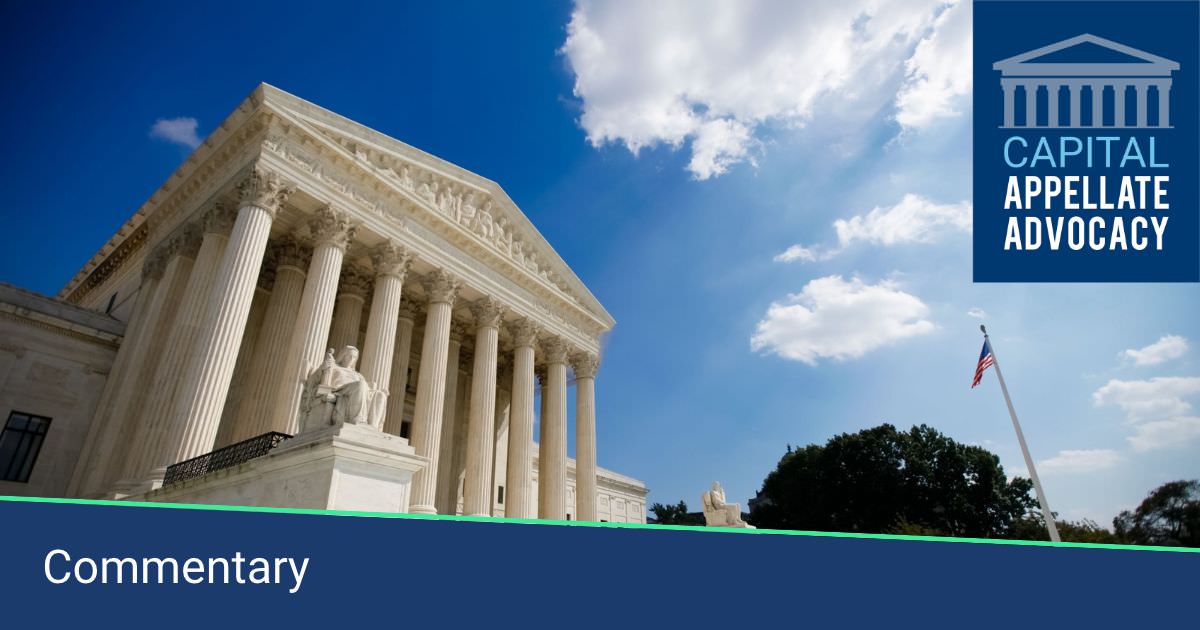Note: On August 26, 2019, the Washington Legal Foundation published this article as part of its Legal Pulse blog.
FIFRA, the federal pesticide statute, gives the U.S. Environmental Protection Agency (EPA) exclusive authority to regulate the content of pesticide labeling, including health & safety warnings. Section 24(b) unequivocally declares that a “State shall not impose . . . any requirements for labeling . . . in addition to or different from those imposed under [FIFRA].” Despite this express preemption provision, EPA for decades has looked the other way while California, as a practical matter, imposes its own pesticide labeling requirements. For example, the California Department of Pesticide Regulation often withholds state registration of FIFRA-registered pesticide products unless and until manufacturers obtain EPA approval for including California-required use directions or restrictions on their products’ labels.
But now—at last—EPA has admonished California for attempting to regulate the warnings on pesticide labeling. On August 8, EPA issued a news release announcing that “EPA will no longer approve product labels claiming glyphosate is known to cause cancer – a false claim that does not meet the labeling requirements of [FIFRA].” The news release explains that “California’s much criticized Proposition 65 has led to misleading labeling requirements for products, like glyphosate [a widely used herbicide], because it misinforms the public about the risks they are facing. This action will ensure consumers have correct information, and is based on EPA’s comprehensive evaluation of glyphosate.”
California’s Safe Drinking Water and Toxic Enforcement Act of 1986, popularly known Proposition 65, provides that “[n]o person in the course of doing business shall knowingly and intentionally expose any individual known to the state to cause cancer or reproductive toxicity without first giving clear and reasonable warning to such individual.” Anyone who resides in, or has visited, California knows that this seemingly laudable right-to-know requirement has produced a ludicrous multitude of warning notices about numerous substances that ordinary people encounter in daily life.
According to EPA Administrator Andrew Wheeler, who is quoted in the Agency’s news release, “[i]t is irresponsible to require labels on products that are inaccurate when EPA knows the product does not pose a cancer risk. We will not allow California’s flawed program to dictate federal policy.” As a result, EPA is requiring companies that hold FIFRA registrations for glyphosate products to remove Proposition 65 cancer warning language.
In its own news release, OEHHA—the laughable acronym for the California agency that administers Proposition 65 —“objects to US EPA’s characterization of any warning concerning glyphosate’s carcinogenicity as ‘a false claim.’” But EPA, not OEHHA, gets to call the shots on what is a false claim on pesticide labeling.
The U.S. Supreme Court made this clear in Bates v. Dow AgroSciences LLC, 544 U.S. 431 (2005). The Court explained that FIFRA’s requirement that pesticides not be distributed with “misbranded” labeling—such as labeling containing false or misleading statements—sets the standard for pesticide labeling. EPA has determined that a Proposition 65 cancer warning on glyphosate labeling is a “false claim” for misbranding purposes, and thus violates FIFRA’s standard for labeling. Under Bates, FIFRA § 24(b) preempts California from requiring pesticide manufacturers to label their products in a way that FIFRA prohibits, such as by including a Proposition 65 cancer warning that EPA has determined is false and misleading. Thus, § 24(b) plays an “important role” in the federal/state pesticide regulatory scheme: “imagine 50 different labeling regimes prescribing the . . . wording of warnings.” Bates, 544 U.S. at 452.
OEHHA disingenuously asserts that it does not “dictate federal policy” for pesticide label warnings. In reality, it does. EPA finally has recognized, however, that California’s de facto regulation of pesticide labeling is barred by federal law and should not be tolerated, at least when California law requires false and misleading label warnings about a pesticide’s alleged toxic effects or risks.
Larry Ebner, founder of Capital Appellate Advocacy PLLC, has been representing and advising pesticide producers and users for the past 45 years.

